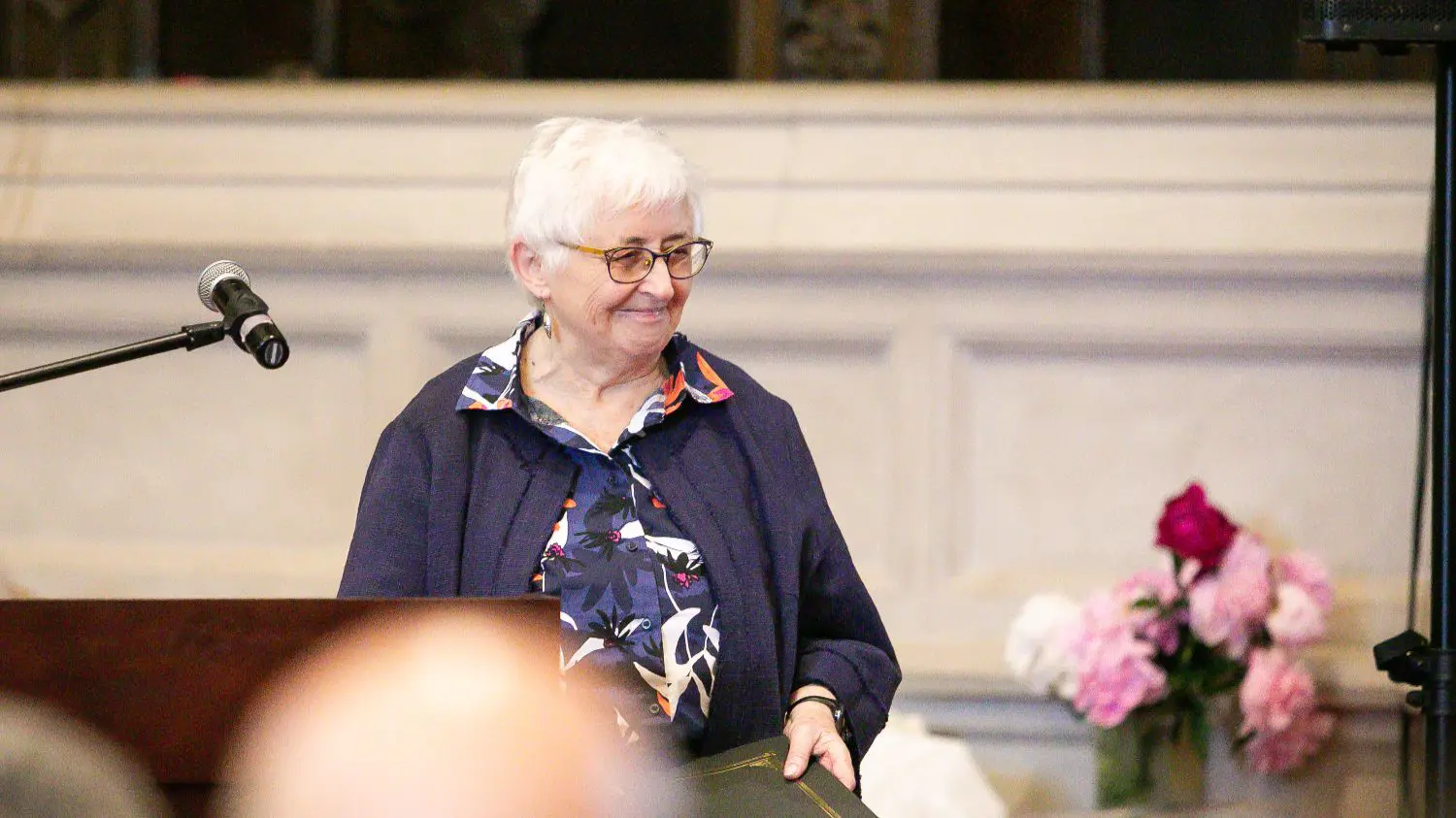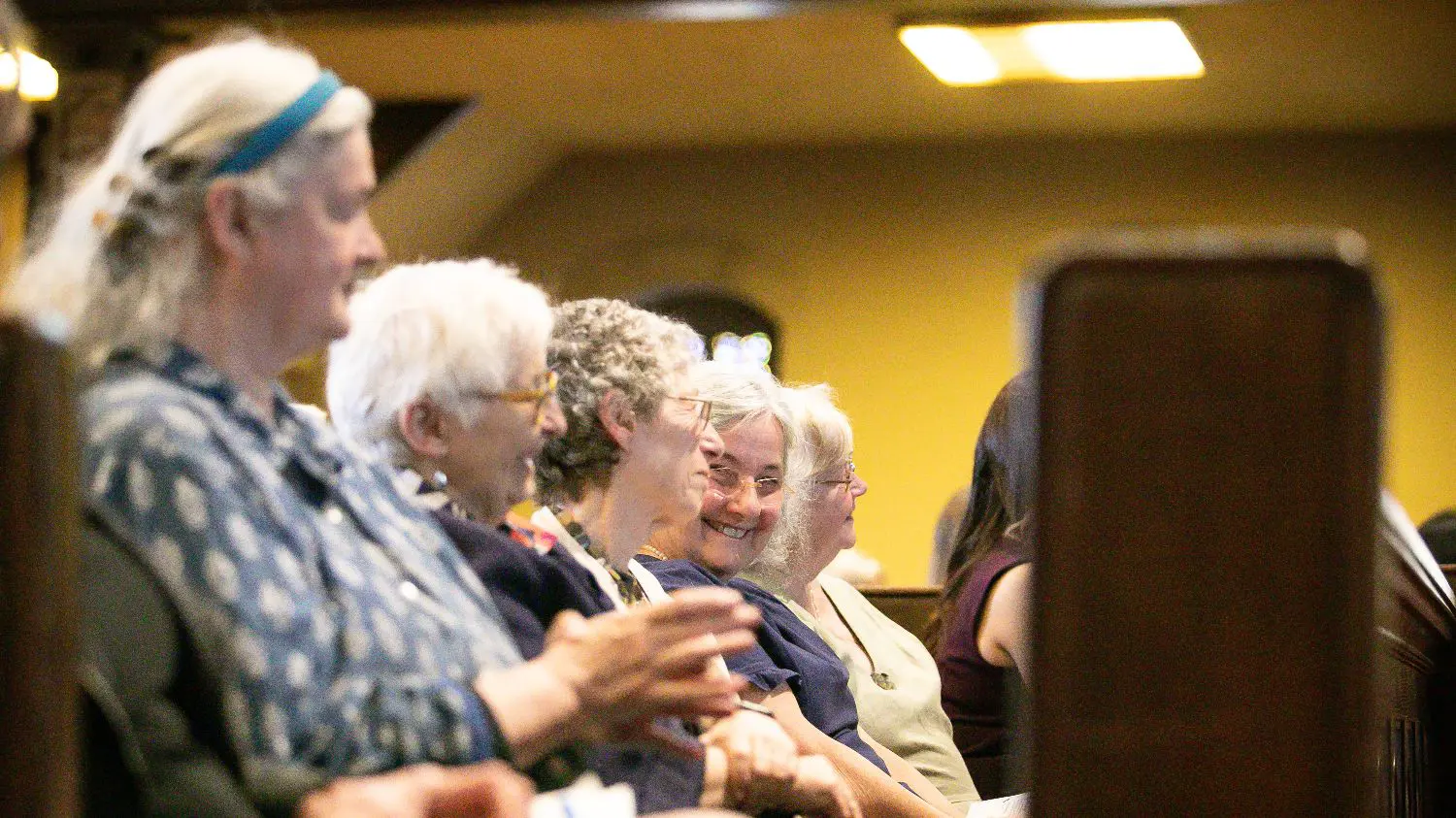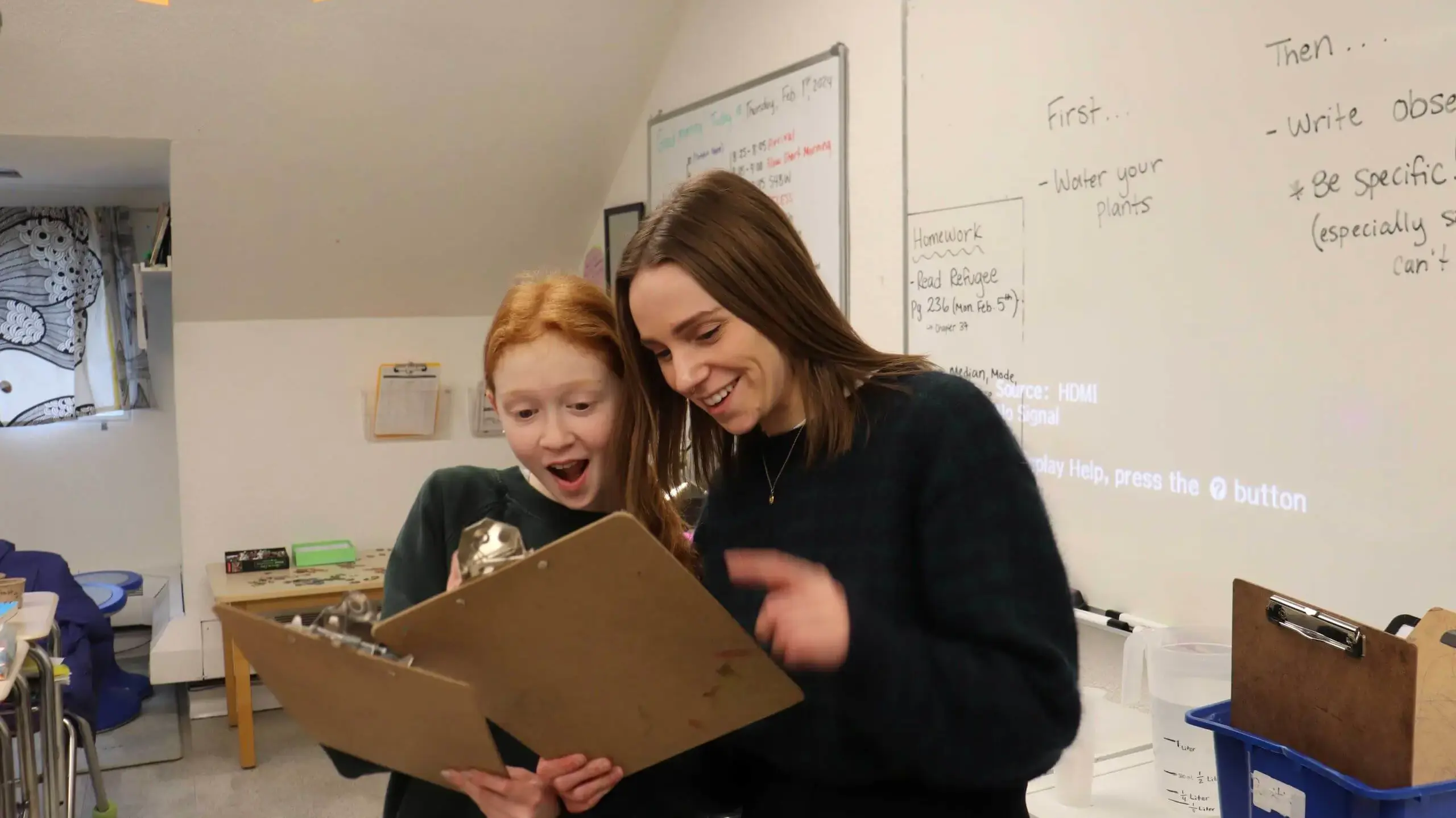Leadership Team
| Zahra Valani |
|---|
Head of SchoolZahra leads with clarity, care, and a deep commitment to Linden’s mission. She brings a strategic lens to every aspect of school life—strengthening academics, nurturing community, and ensuring every student is seen and supported. |
| Katherine Szczechowicz |
Director of Admissions & Community EngagementKatherine is the welcoming heart of Linden. She builds strong relationships with families, students, and community partners—helping new families feel seen, valued, and connected from the very first visit. |
| Beth Alexander |
Associate PrincipalBeth brings decades of experience as an educator and leader. She supports faculty with thoughtfulness and integrity, helping to shape a rigorous, inclusive academic program across all grades. |
| Carmen Jackson |
Director of Student Services and OperationsCarmen ensures Linden runs smoothly behind the scenes. From managing our campus transition to day-to-day logistics, she brings diligence and care to every detail, ensuring that students and staff are safe and supported. |
Together, this leadership team ensures that Linden is a place where students, families, and educators thrive—anchored in equity, guided by purpose, and inspired by student voice.
The Linden School Board
Board Members
Welcome Message
It is our pleasure and privilege, as the co-chairs of The Linden School board, to use the occasion of the new website launch to provide an overview of the board’s purpose, work, current membership and recent accomplishments. We encourage you to read the profiles of our board members and what each has written about their relationship to The Linden School, as well as their reasons for serving in a fiduciary role as volunteers.
Once you have done that, you can look for us at school events! Please find us, introduce yourselves and share your own stories about why you have–or plan to–join the Linden School community.
Warmly,
Ayesha Lumley-Lee
Kimberley Noble
Co-Chairs
The Linden School Board
Board Purpose & Role in Advancing Linden’s Mission
At a glance, the Linden School board members are:
- driven by the school’s mission and values
- focus on policy and governance, not operations
- have fiduciary responsibilities
- make decisions by consensus
- are volunteers; we do not receive remuneration for our work, and we openly identify and declare conflicts of interest
The Linden School’s board acts in a fiduciary capacity on behalf of the school. No board member represents an individual constituency; instead, our policies are designed to ensure that the Board remains a selection of individuals chosen for their commitment to the overall Linden mission and their ability to serve that mission effectively.
| Read More |
|---|
|
The Board operates under two sets of legislation. Linden was incorporated in 1933 as a provincial not-for-profit corporation and is therefore governed by Ontario’s Not-for-Profit Corporations Act (ONCA), 2010. Our articles of incorporation were amended in 2024 to comply with all legislative changes. The school also sought, and was granted, registered charitable status under federal statute. Our charitable articles were updated and expanded in 2024 in compliance with new guidelines from the Canada Revenue Agency (CRA). Linden’s Board members act in a fiduciary capacity, meaning that they have the legal responsibility for the security and long-term viability of the institution and its students. Although we are no longer able to call ourselves trustees in the narrow legal sense as now defined under ONCA, and are designated as directors under not-for-profit legislation, we do not operate as traditional corporate directors; instead, Linden’s Board continues to frame its policies and actions using a broader historical and cultural understanding of “trustee”–that is, people who are charged with the responsibility of managing resources for the good of others. Put in a position of trust and responsibility for the benefit of others. |

Values or Principles That Guide the Board’s Decision-Making
Linden Board processes are best summed up as follows:
- Keep it macro
- Look at issues in the largest frame possible
- Move to a narrower or more detailed frame only when needed
- “Nose in, fingers out”
- Practice non-interference in the day-to-day operations of the school
- Focus on the future
- Ensure the future of the school over time through strategic planning
The Board can provide the best guidance by examining issues from the largest “frame” possible and only moving to a narrower or more detailed frame when necessary. For example, the Board approves the overall annual budget and its components, but operational leadership determines faculty and staff salaries.
| Read More |
|---|
|
The Principal brings issues to the Board with the understanding that the Board's guidance will come from this larger frame and its context. Board members maintain a position of “non-interference” in the day-to-day events of the Linden School. Members of the Linden community may invite Board members to participate in daily activities. Still, the role of the Board member is to remain informed rather than directly involved in these events. The Board meets eight times a year, following a specific calendar of fiduciary and mission-specific responsibilities that range from approval of the final annual budget in September, marketing and enrollment support in October, the AGM in November, and, beginning each new year, planning and support for the following year’s goals and activities. The Board establishes as its operating principle that a consensus of Board members should be reached on all decisions. Between meetings, the Board’s role is advisory to the Principal, who is free to accept or reject any advice sought from or provided by individual Board Members. If a Board member is lobbied to act,/he/they will gather information and identify if there are unclear policy issues or breaks in communication that need attention. Any possible actions will then be referred to the Principal. The Principal is an ex officio member of the Board and does not participate in any voting or final decision-making, as is standard for non-profit boards. Board executives consist of two co-chairs, a secretary, and a treasurer. All positions are appointed from among the standing members by a decision of the Board from members who have served on the Board or its committees for at least two years. Linden Board executive positions are functional positions only. The executive is not a decision-making body, and its members do not constitute an executive committee. Board members and executive positions may be added or created during the year, but are confirmed at the Annual General Meeting of the corporation's members, held each November after the financial audit. In keeping with Linden’s own best historical practice, and following the advice of not-for-profit/charitable lawyers, Linden’s legal membership consists of Board members who also act as the school’s fiduciaries. |
Board Committees
Board committees are established as either permanent standing committees or ad hoc committees. Each committee has a specific term of reference, and can include members of the community or external experts.
Every Linden Board committee includes at least one Board Member whose duty it is to report to the full Board and refer decisions where appropriate.
The Linden School Board established four committees to oversee work beyond Board meetings. These included Finance, Human Resources, Archives, and the Long-Range Planning Committee.
| current Board committees |
|---|
|
In the 2025-2026 school year, the current Board committees are as follows, in alphabetical order: The Academic Committee ensures that teaching and learning at The Linden School is consistent with the school's mission, values and culture. The Finance committee secures the sound fiscal planning and management of The Linden School; monitors the legal financial requirements under provincial and federal legislation; assesses financial opportunities and risks; helps inform the Board’s fiscal decisions; acts as a sounding board and advisor to the school’s operational leadership; assists the Treasurer in management of the annual audit. The Governance Committee ensures that the Board fulfills The Linden School's mission through its legal, ethical, and functional responsibilities, including the development of adequate governance policies, effective recruitment strategies, the orientation of new members, the monitoring of Board activities, and the evaluation of Board members' performance. The Human Resources committee recruits, mentors, and supports school leadership, including the Principal or co-Principals, and provides expert management advice in various areas, such as employee relations, HR best practices, faculty relations, academic excellence, and leadership development, including outside legal expertise. The Strategic Communications committee works to ensure that The Linden School’s stories are valued, preserved, shared and used in ways that are consistent with the school's mission, values and culture, and effectively aligned with the school’s strategic goals. |
Recent Board-Led Initiatives
In the past 18 months, Board-led initiatives at Linden have included:
- launching “The Leap Year” strategic plan 2023-2025, with its four key pillars focused on creating new foundations; identifying and building on our strengths; mobilizing cutting-edge research into ground-breaking developments and practical applications of feminist pedagogy; and encouraging a new marketing and communications framework that will enable us to tell Linden’s story to existing and new families effectively
- recruiting, hiring, onboarding and supporting a new Principal and leadership team
- selling Linden’s historic building at 10 Rosehill Avenue and, through an ad hoc board committee and working with school leadership, locating and securing a lease on our new space at 920 Yonge Street
- reviewing and revising Linden’s articles of incorporation and statement of charitable activities–along with the Board’s policies and practices–to comply with new provincial and federal legislation while ensuring that our new bylaws reflect the school’s mission
- supporting Linden’s leadership as it designs and implements strategic planning for 2025-2027 and beyond

Community Engagement & Board Participation
The Linden School Board has consistently sought the engagement of community members in its deliberations. We do this via three key mechanisms.
Since the school’s inception, the Board has maintained two “open chairs” at board meetings, where faculty, parents, students, and other community members can be invited to attend part of a meeting to provide input or inform others. Due to the fiduciary nature of board meetings and communications, such invitations are at the discretion of the Principal and the Board co-chairs.
The Linden School Board has established a policy for the recruitment and tenure of Board members that encourages community participation. Community members interested in contributing to the work of the Linden Board may contact board members; however, parents are encouraged first to discuss their interest with the Principal, whose requirements and judgment are central to Board recruitment.
| Read More |
|---|
|
Board appointments are subject to the board’s needs based on an ongoing skills matrix, as well as each individual’s proven ability to serve as an institutional fiduciary within the framework of Linden’s mission. In many cases, parents are asked to serve as volunteer board committee members before being invited to join the board in a fiduciary capacity. Legislation governing registered charities, as well as Linden’s own conflict of interest policy, preclude anybody who the organization actively employs from serving on the Board, so we explore ways in which the school’s existing faculty and staff might be encouraged to have a voice on the Board either individually or collectively in such a way that this would fit with the Board’s policies. The Board has often invited faculty to give presentations at the Principal's invitation, and they have occupied the open chairs. The HR Committee also undertakes an ongoing process of seeking faculty feedback, including periodic faculty surveys and attending faculty meetings. The two founders of the school and founding members of the Board, Diane Goudie and Eleanor Moore, have tenure for life. Demonstrating the Board’s gratitude for, and recognition of, their long-held commitment and contributions, members of Linden’s original Board of Trustees have been designated as emerita board members. This appointment ensures that they will always have a voice at the Board level, and that they can be called upon if their expertise and advice are required, and that they can return at any time as active Board members with the full range of roles and responsibilities befitting a Linden School fiduciary. |











